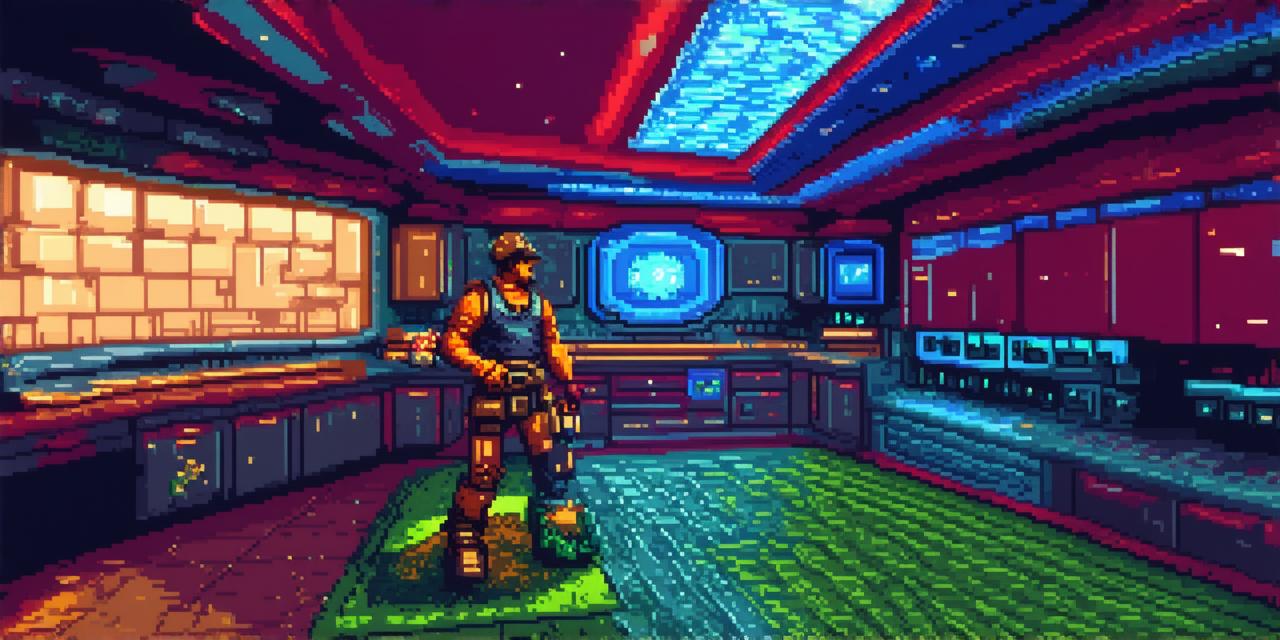Introduction:
The video game industry is rapidly evolving, with new technologies and platforms emerging every year. However, this evolution has also led to the displacement of game developers, who are struggling to keep up with the changing landscape. In this article, we will explore the reasons why game developers are losing their jobs and provide practical solutions to help them adapt and thrive in this fast-paced industry.
I. The Rise of Mobile Gaming
The advent of mobile gaming has had a significant impact on the video game industry. With smartphones becoming more powerful and accessible, mobile games have gained immense popularity, and game developers are increasingly focusing on creating games for these devices.
1. The decline of console gaming
As mobile gaming becomes more popular, console gaming is losing its dominance. Game developers who specialize in creating games for consoles are finding it increasingly difficult to find work, as companies shift their focus towards mobile platforms.
2. The rise of indie game development
The emergence of indie game development has also contributed to the decline of jobs in the gaming industry. Indie game developers are able to create games on their own, without the need for large teams of developers. This has led to increased competition and a decrease in demand for traditional game development jobs.
II. The Impact of Artificial Intelligence
Artificial intelligence (AI) is becoming increasingly prevalent in the video game industry. AI-powered games are becoming more popular, and game developers are being required to incorporate these technologies into their games.
1. The need for specialized skills
AI-powered games require specialized skills that are not always available in traditional game development teams. Game developers who do not have experience in AI programming or machine learning may find it difficult to adapt to this new technology and remain competitive in the industry.
2. Automation of tasks
As AI becomes more prevalent in the video game industry, some tasks that were previously performed by game developers are being automated. This automation is leading to job losses for game developers who specialized in these areas, such as level design or animation.
III. The Importance of Continuous Learning
In order to remain competitive in the video game industry, game developers must continuously learn and adapt to new technologies and platforms. This requires a willingness to invest time and resources into ongoing education and training.
1. The cost of education
Continuous learning in the video game industry can be expensive. Game developers may need to invest in courses, workshops, or other training programs in order to acquire the necessary skills to remain competitive. This cost can be a barrier for many game developers, particularly those who are just starting out or working on a tight budget.
2. The time required for learning
Continuous learning requires a significant investment of time, which can be challenging for game developers who are already working long hours. Game developers may need to take time off from their work in order to learn new technologies or platforms, which can impact their ability to meet deadlines and deliver high-quality games.
IV. Solutions for Game Developers

While the video game industry is rapidly evolving, there are steps that game developers can take to adapt and thrive in this fast-paced environment. By investing in ongoing education and training to stay up-to-date with the latest technologies and platforms in the video game industry, developing specialized skills that are in high demand in the industry, and embracing new technologies, game developers can position themselves as valuable assets in the industry and avoid losing their jobs to the rapidly changing landscape.
1. Invest in ongoing education and training
Game developers should invest in ongoing education and training to stay up-to-date with the latest technologies and platforms in the video game industry. This may involve attending workshops, participating in online courses, or pursuing advanced degrees in relevant fields.
2. Develop specialized skills
Game developers should focus on developing specialized skills that are in high demand in the video game industry. This may involve learning programming languages such as C++ or Unity, or acquiring knowledge in areas such as AI and machine learning.
3. Embrace new technologies
Game developers should embrace new technologies and platforms in order to remain competitive in the video game industry. This may involve exploring the use of virtual reality or augmented reality in gaming, or incorporating AI-powered technologies into their games.
Summary:
The video game industry is constantly evolving, and game developers must be willing to adapt and learn in order to remain competitive in this fast-paced environment. By investing in ongoing education and training, developing specialized skills, and embracing new technologies, game developers can position themselves as valuable assets in the industry and avoid losing their jobs to the rapidly changing landscape.
FAQs:
Here are some frequently asked questions about adapting to the evolving video game industry:
- How do I stay up-to-date with the latest trends in the video game industry?
- What specialized skills are in high demand in the video game industry?
- How can I avoid losing my job to automation in the video game industry?
Attend workshops and conferences, participate in online communities, and follow relevant news sources.
Programming languages such as C++ or Unity, knowledge of AI and machine learning, and experience with virtual reality or augmented reality technologies.
Focus on tasks that cannot be automated, such as creative problem-solving or strategic planning. Additionally, consider acquiring skills in areas such as data analysis or user experience design, which may be less susceptible to automation.




